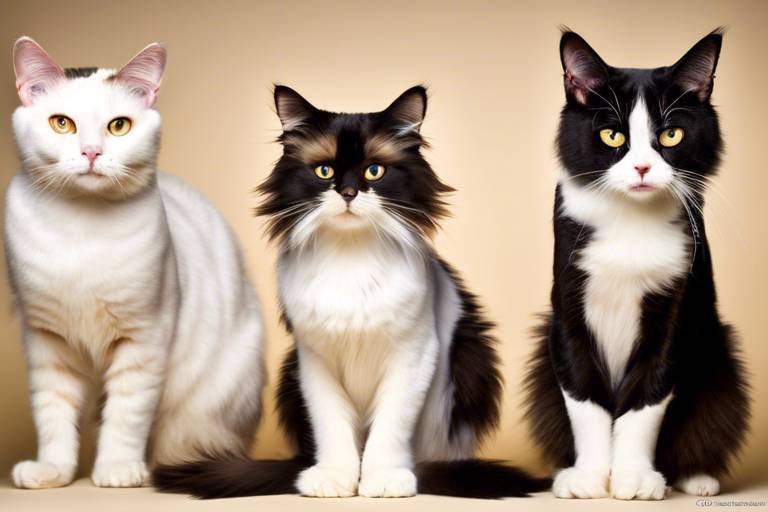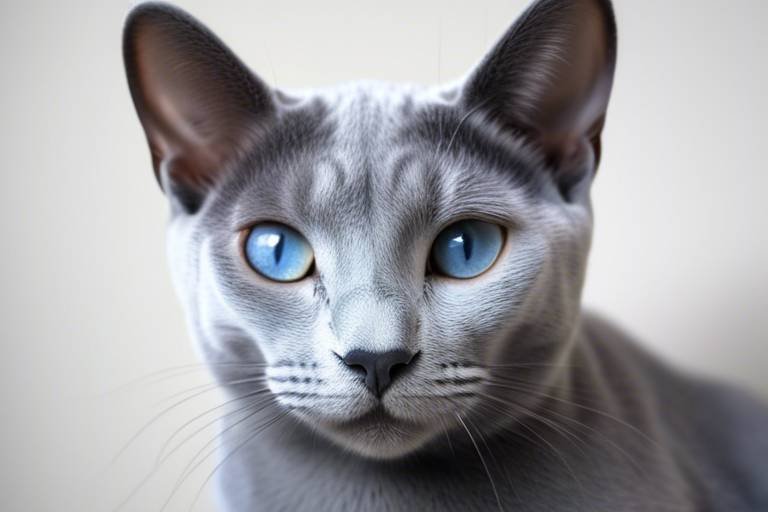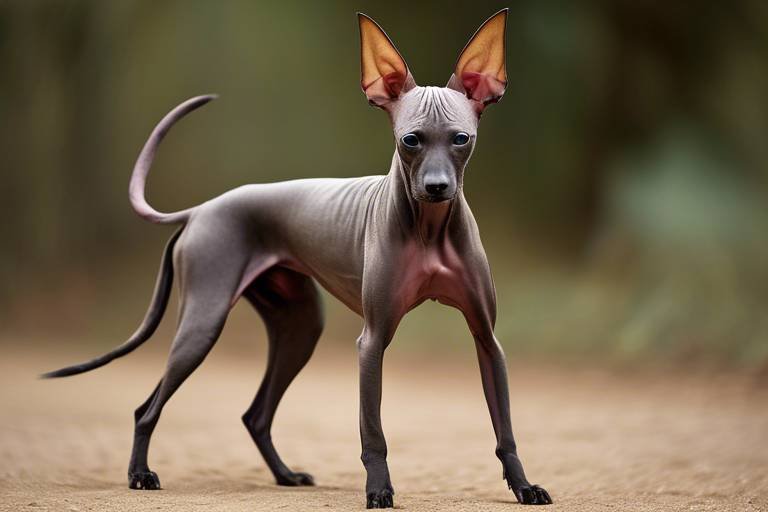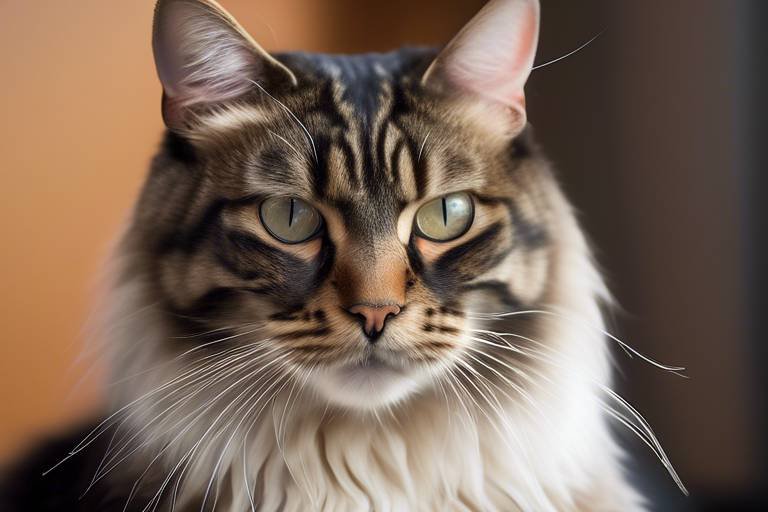Exploring the Friendly Nature of the Sphynx
The Sphynx cat is not just another breed; it’s a delightful bundle of personality wrapped in a unique, hairless package. When you first set your eyes on a Sphynx, you might be surprised by its distinct appearance, but what truly sets this breed apart is its affectionate nature. These cats are renowned for their lively and engaging demeanor, making them a favorite among cat lovers who appreciate a social companion. But what is it about the Sphynx that makes it so friendly? Is it their playful antics, their need for human interaction, or perhaps a combination of both? Let’s dive deeper into the world of Sphynx cats and explore the characteristics that contribute to their friendly disposition.
The Sphynx breed originated in the 1960s when a hairless kitten was born to a domestic cat in Canada. Since then, they have captured the hearts of many with their playful demeanor and striking looks. Unlike traditional cats, Sphynx cats lack fur, which means they require different care, but this unique feature is just the tip of the iceberg. Their physical traits, including large ears, prominent cheekbones, and wrinkled skin, give them an almost alien-like appearance, yet they are incredibly endearing. The absence of fur means they often seek warmth and closeness with their human companions, which significantly contributes to their friendly nature.
One of the most remarkable aspects of Sphynx cats is their sociable behavior. These cats thrive on interaction, not just with humans but also with other pets. They are known to be curious and enjoy exploring their environment, often following their owners around the house. This behavior fosters a friendly atmosphere, as they seek to engage with everyone around them. In fact, Sphynx cats often form strong bonds with their family members, making them feel like an integral part of the household. Their need for companionship is a key factor in their friendly disposition, as they are less likely to be solitary or aloof compared to other breeds.
One of the defining traits of Sphynx cats is their affection towards their owners. These cats are known for their loving nature, often curling up on laps or snuggling close to their humans. This desire for closeness influences their behavior significantly; they thrive on physical contact and will often seek out attention. Imagine coming home after a long day to find your Sphynx eagerly waiting for you, ready to jump into your arms. This level of affection not only strengthens the bond between the cat and its owner but also creates a warm and inviting atmosphere in the home.
Another reason why Sphynx cats are so friendly is their playful nature. These cats are incredibly energetic and often seek interactive playtime with their owners. Whether it’s chasing a feather toy or playing hide-and-seek, their enthusiasm for play enhances their friendly demeanor. Engaging in play not only provides mental stimulation for the cat but also fosters a deeper connection with their human companions. It’s like having a furry little buddy who is always up for a game, making every day an adventure.
Sphynx cats are also known for being quite vocal. They use a variety of sounds to communicate with their owners, from gentle purrs to playful chirps. This vocalization is a significant aspect of their personality, as it allows them to express their needs and feelings. When your Sphynx meows at you, it’s not just noise; it’s their way of saying, “Hey, I’m here! Let’s play!” This form of communication strengthens the bond between the cat and its owner, making interactions more engaging and enjoyable.
Adaptability is another trait that contributes to the friendly nature of Sphynx cats. They tend to adjust well to various living situations, whether it's a bustling family home or a quieter apartment. Their ability to adapt means they can thrive in different environments, making them suitable for various lifestyles. Early socialization is crucial for Sphynx cats, as it helps them become well-rounded and confident in their interactions with people and other pets. The more they are exposed to different experiences, the friendlier and more sociable they become.
Despite their lack of fur, Sphynx cats require specific grooming routines to maintain their health and comfort. Their skin is more exposed to environmental factors, which means they need regular cleaning to prevent oil buildup and skin issues. Maintaining their hygiene not only keeps them healthy but also contributes to their overall friendliness. A well-cared-for Sphynx is generally more comfortable and, consequently, more affectionate towards its owners.
Due to their lack of fur, Sphynx cats have unique skin care needs. Regular baths are essential to keep their skin clean and free from excess oils. This grooming routine promotes comfort, which in turn enhances their friendly behavior. A clean and comfortable Sphynx is more likely to seek out cuddles and affection, creating a loving bond with its family.
Proper nutrition plays a crucial role in the health of Sphynx cats. A balanced diet supports their energy levels and sociable nature, enhancing their friendly interactions. It’s important to provide high-quality cat food that meets their specific needs. When a Sphynx feels good physically, it is more likely to display its playful and affectionate personality, making it a joy to have around.
- Are Sphynx cats hypoallergenic? While no cat is completely hypoallergenic, Sphynx cats may produce fewer allergens than other breeds due to their lack of fur.
- Do Sphynx cats require special diets? Yes, they benefit from a high-quality, balanced diet to maintain their health and energy levels.
- How often should I bathe my Sphynx cat? It’s recommended to bathe them every 1-2 weeks to keep their skin clean and healthy.
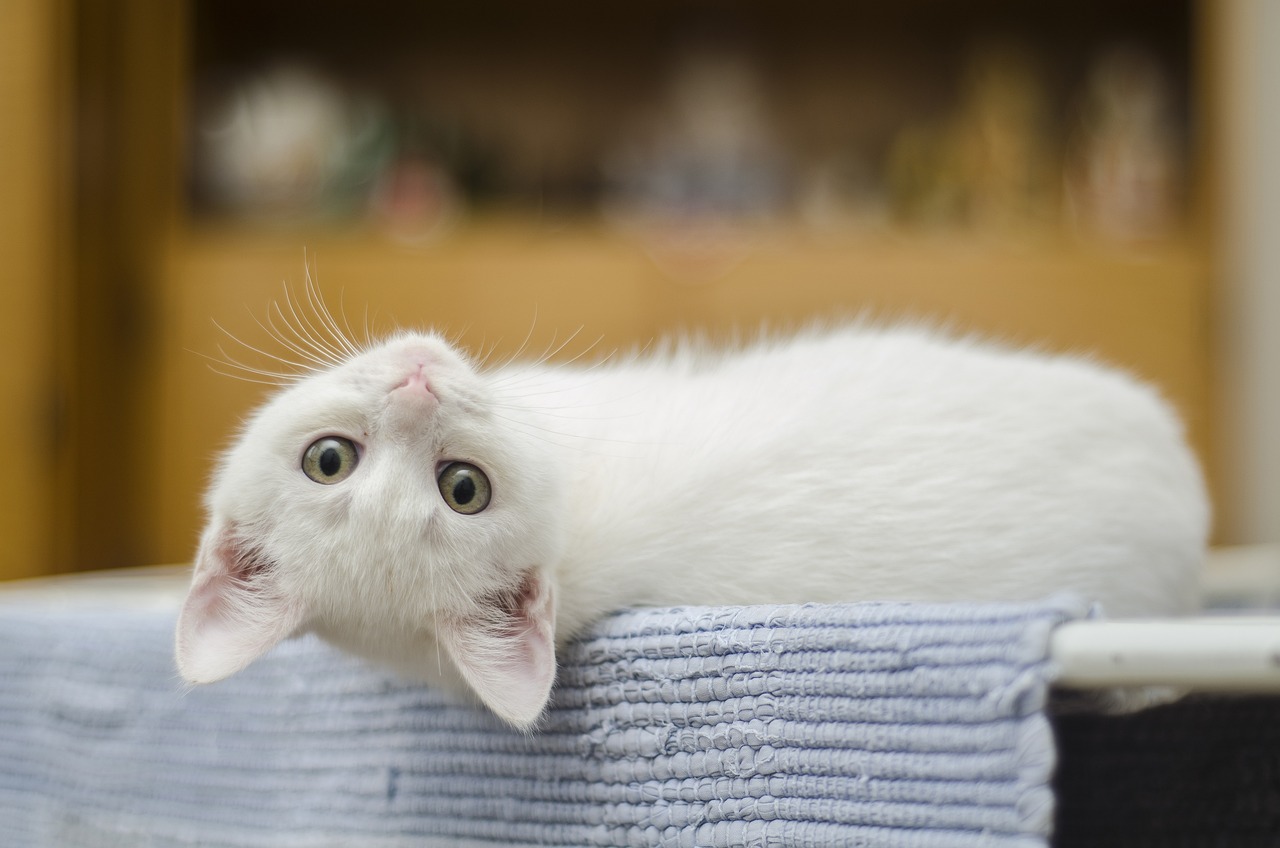
Understanding the Sphynx Breed
The Sphynx cat is a breed that truly stands out in the feline world, not just for its distinctive hairless appearance but also for its engaging personality. Originating in the late 1960s in Canada, the Sphynx was the result of a genetic mutation that led to the absence of fur. While many might think that a hairless cat would be less appealing, the Sphynx has proven that beauty lies beyond fur. Its skin, often described as warm and soft, has a unique charm that captivates many cat lovers.
One of the most fascinating aspects of the Sphynx breed is its physical traits. With large, bat-like ears, prominent cheekbones, and a wrinkled face, the Sphynx has an almost alien-like appearance. These features not only contribute to its quirky look but also enhance its friendly demeanor. The lack of fur means that Sphynx cats are often more affectionate and social, as they seek warmth and companionship from their human counterparts. Unlike many other breeds, the Sphynx thrives on interaction and closeness, making it an ideal pet for those who enjoy a lively feline presence in their home.
Moreover, the Sphynx’s playful nature is a key component of its friendly disposition. These cats are known for their high energy levels and love for playtime. They often engage in antics that can leave their owners in stitches, showcasing their curious and adventurous spirit. Whether it’s chasing after a feather toy or climbing to the highest point in the house, Sphynx cats bring a sense of joy and laughter to any household. Their playful behavior is not just a means of entertainment; it’s a way for them to bond with their owners, fostering a relationship built on trust and love.
In addition to their playful and affectionate nature, Sphynx cats are also highly social creatures. They thrive on companionship, not just from humans but also from other pets. When well-socialized from a young age, Sphynx cats can coexist harmoniously with dogs, other cats, and even small animals. This adaptability is a testament to their friendly nature and desire for interaction. They are often described as “dog-like” in their loyalty and affection, following their owners around the house and seeking attention when they need it.
In summary, the Sphynx breed is a remarkable combination of unique physical characteristics and an affectionate, social personality. Their origins, appearance, and behavior all contribute to their status as one of the friendliest cat breeds out there. So, if you’re considering adding a furry companion to your family, the Sphynx might just be the perfect fit!
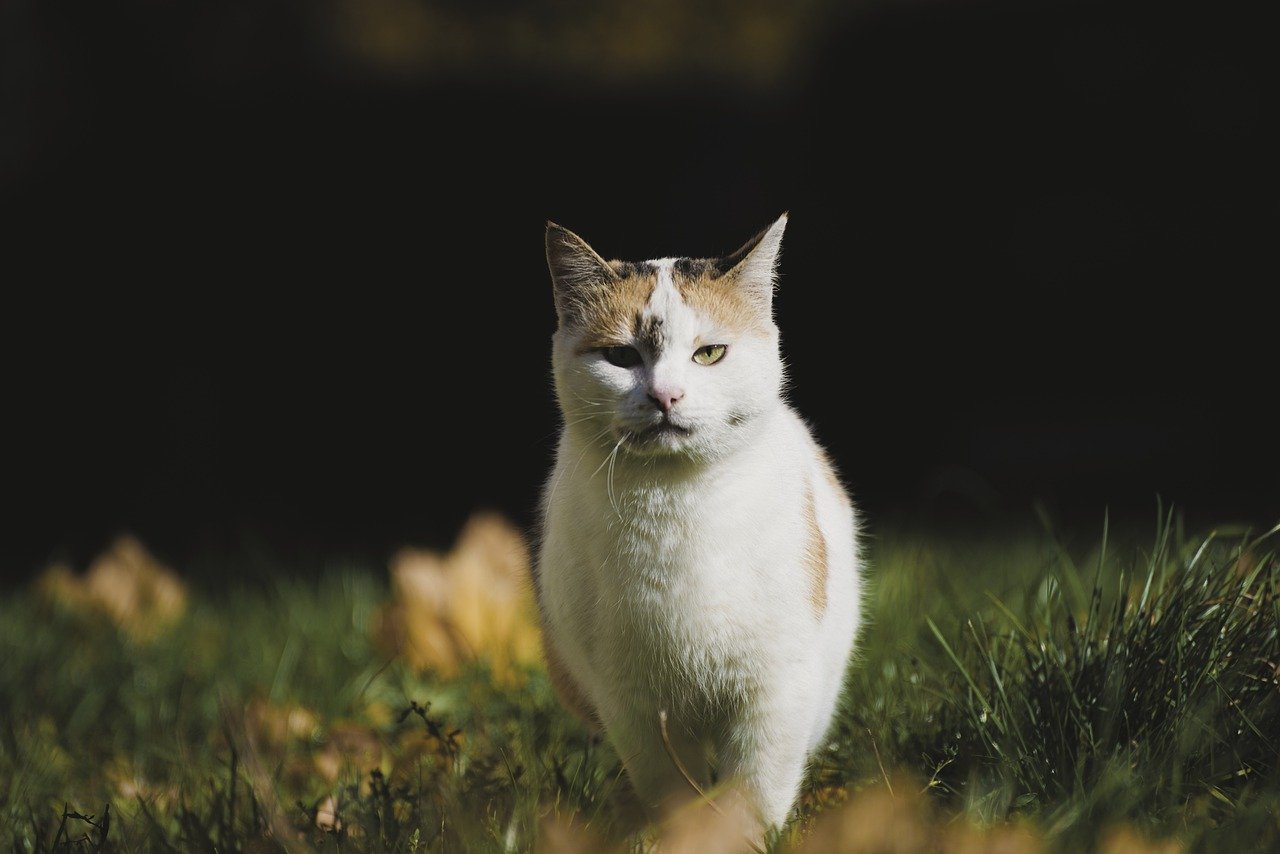
Social Behavior of Sphynx Cats
The Sphynx cat is not just a pretty face; it's a bundle of joy wrapped in a unique, hairless package. These cats are known for their extremely sociable nature, making them some of the most affectionate pets you can own. Unlike many other breeds that might prefer solitude or a more reserved lifestyle, Sphynx cats thrive on human interaction and love to be the center of attention. Have you ever seen a cat that practically follows you around the house, demanding your affection? That’s a Sphynx for you! Their friendly demeanor isn't just a coincidence; it’s deeply rooted in their social behavior.
Sphynx cats are often described as dog-like in their loyalty and desire for companionship. They are incredibly curious creatures who love to explore their surroundings and engage with their human families. This breed has a knack for forming strong bonds, not just with their owners but also with other pets in the household. Imagine coming home after a long day, and instead of hiding away, your cat greets you at the door, ready to share in your daily adventures. That’s the magic of having a Sphynx!
One of the most fascinating aspects of their social behavior is their ability to adapt to different living situations. Whether you live in a bustling household with kids and other pets or a quieter environment, Sphynx cats can easily adjust. This adaptability is crucial as it allows them to fit in seamlessly, fostering a friendly atmosphere wherever they go. They are not territorial like some other breeds; rather, they are inclusive and welcoming, which is a big plus for multi-pet households.
When it comes to companionship, Sphynx cats have a strong need for social interaction. They often seek out their owners for cuddles and playtime, which not only enhances their friendliness but also strengthens the bond between the cat and its human. Their playful antics can turn any dull moment into a joyful experience. For instance, they might engage in a game of chase with a feather toy or even join you for a quick round of fetch! Their playful nature is a significant factor that keeps their spirits high and their interactions friendly.
Moreover, the Sphynx's vocal communication adds another layer to their social behavior. These cats are known for their distinctive sounds, which they use to express their needs and desires. Whether it's a soft meow to get your attention or a more demanding cry when they want to play, their vocalizations are an essential part of their personality. This form of communication not only conveys their feelings but also invites you to engage with them, making every interaction feel special.
To sum it up, the social behavior of Sphynx cats is a delightful mix of affection, playfulness, and adaptability. They thrive on companionship and have an innate ability to connect with their human families and other pets. If you’re looking for a cat that will shower you with love and keep you entertained, the Sphynx might just be your perfect match!
- Do Sphynx cats get along with other pets? Yes, Sphynx cats are very sociable and can adapt well to living with other pets.
- How much attention do Sphynx cats need? They require a lot of attention and enjoy interactive playtime with their owners.
- Are Sphynx cats vocal? Yes, they are known for their vocalizations, which they use to communicate with their owners.
- Can Sphynx cats be left alone? While they can be left alone for short periods, they thrive on companionship and may become lonely if left alone for too long.
Affectionate Companionship
The Sphynx cat is not just a pet; it’s a loving companion that thrives on close relationships with its owners. These cats have an innate need for physical closeness, which often results in them being the most affectionate members of the family. Imagine coming home after a long day, and there’s your Sphynx, eagerly waiting at the door, ready to shower you with love and warmth. This level of devotion is a hallmark of their personality, making them incredibly special.
What makes the Sphynx so affectionate? Well, their lack of fur means they often seek warmth from their human companions. They love to curl up in laps, snuggle under blankets, or even sleep beside you at night. This behavior is not just about warmth; it’s a deep-seated desire for connection. When a Sphynx chooses to snuggle with you, it’s their way of saying, “I trust you, and I want to be close.”
Furthermore, the Sphynx is known for its playful nature, which complements its affectionate tendencies. These cats are not just couch potatoes; they thrive on interactive playtime that strengthens their bond with their owners. Engaging in games like fetch or using feather toys can lead to joyous moments filled with laughter and love. The more you play with your Sphynx, the deeper your connection will grow.
Interestingly, Sphynx cats are also known for their expressive personalities. They often follow their humans around the house, wanting to be part of every activity. Whether you're cooking, working, or relaxing, your Sphynx will be right there, seeking your attention and companionship. This behavior not only reinforces their affectionate nature but also makes them incredibly engaging pets.
To sum it up, the affectionate companionship of a Sphynx cat is a beautiful blend of warmth, playfulness, and emotional connection. Their need for closeness and their playful antics ensure that you will never feel alone. They’re not just pets; they’re family members that bring joy and love into your life. If you’re seeking a furry friend that embodies affection, look no further than the charming Sphynx!
- Do Sphynx cats require a lot of attention?
Yes, Sphynx cats thrive on human interaction and love to be involved in their owners' daily lives. - Are Sphynx cats good with children?
Absolutely! Their playful and affectionate nature makes them wonderful companions for children. - How do I keep my Sphynx clean?
Regular baths and skin care routines are essential due to their unique skin needs. - Do Sphynx cats get along with other pets?
Generally, they are very sociable and can adapt well to other pets if socialized early.
Playfulness and Engagement
The Sphynx cat is not just a pretty face with its unique hairless appearance; it's also a bundle of energy and enthusiasm! These cats are known for their playful nature, which is one of the most endearing qualities that make them such delightful companions. Imagine coming home after a long day, only to be greeted by a furry little tornado that wants nothing more than to engage you in a game of chase or fetch. Their playful antics are not only entertaining but also serve as a reminder of the joy that pets can bring into our lives.
When it comes to playtime, Sphynx cats have a knack for keeping their humans on their toes. They thrive on interactive play, often seeking out their owners to join in on the fun. Whether it's a feather toy, a laser pointer, or even a simple ball of yarn, Sphynx cats will pounce, leap, and dash around with unmatched enthusiasm. This behavior not only showcases their agility but also strengthens the bond between the cat and its owner. Engaging in these playful activities is essential for their physical and mental well-being, as it helps to release pent-up energy and keeps them stimulated.
What’s truly fascinating is how Sphynx cats often develop their own unique play styles. Some may prefer to play hide and seek, darting in and out of hiding spots around the house, while others might enjoy a good game of tag. This variety in play behavior means that there is never a dull moment with a Sphynx around! Their inquisitive nature drives them to explore their environment, leading to spontaneous and often hilarious play sessions.
Moreover, Sphynx cats are known for their social intelligence. They can read their owner's moods and often adjust their playfulness accordingly. If you’re feeling down, your Sphynx might just curl up next to you and offer a comforting purr, or if you're up for some fun, they’ll be ready to initiate a playful romp. This adaptability not only highlights their friendly disposition but also shows how they can be sensitive companions, always ready to engage and uplift your spirits.
Incorporating play into your daily routine with a Sphynx cat is crucial. Here are some fun ideas to keep your Sphynx engaged:
- Interactive Toys: Invest in toys that require your Sphynx to think and move, such as puzzle feeders or treat-dispensing toys.
- Regular Play Sessions: Set aside time each day for dedicated play. It’s a great way to bond and keep your Sphynx active.
- Exploration Time: Allow your Sphynx to explore new areas of your home safely. This can lead to new adventures and stimulate their curiosity.
In conclusion, the playful and engaging nature of Sphynx cats is a significant factor in their friendly demeanor. Their love for interaction and play not only enriches their lives but also enhances the connection they share with their human companions. So, if you’re considering bringing a Sphynx into your home, be prepared for endless fun and affection!
Vocal Communication
The Sphynx cat is not just a pretty face; it has a personality that shines through its vocalizations. These cats are known for being quite talkative, often engaging in a variety of sounds that express their feelings and desires. Imagine having a conversation with your furry friend, where every meow, chirp, and purr holds a special meaning. This vocal communication is a significant aspect of their friendly nature, allowing them to connect with their human companions on a deeper level.
When you hear a Sphynx cat, you might notice that their vocalizations can range from soft purrs to loud, demanding meows. Each sound serves a purpose, whether it's to seek attention, express hunger, or simply say "hello." For instance, a gentle purr might indicate contentment, while a more assertive meow could be a call for playtime or food. This ability to communicate effectively makes them not just pets, but interactive companions that thrive on social interaction.
Furthermore, the vocal nature of Sphynx cats encourages positive interactions between them and their owners. When a Sphynx meows at you, it’s almost like they’re inviting you into their world, asking for your presence and affection. In fact, many Sphynx owners report that their cats seem to have distinct sounds for different needs. This unique form of communication fosters a sense of understanding and intimacy, enhancing the bond between the cat and its human.
Let’s not forget the importance of responding to these vocalizations. When you engage with your Sphynx by talking back or responding to their calls, you reinforce their behavior and encourage more communication. This creates a friendly loop of interaction that can lead to a stronger relationship. Just like humans, Sphynx cats thrive on attention and interaction, and their vocalizations are a key part of how they express their needs and feelings.
In summary, the vocal communication of Sphynx cats is a fascinating aspect of their personality that plays a crucial role in their friendly demeanor. By understanding and responding to their sounds, you can deepen your bond with these affectionate creatures and enjoy the unique companionship they offer.
- Do Sphynx cats have different vocalizations compared to other breeds? Yes, Sphynx cats tend to be more vocal and expressive than many other breeds, often using a variety of sounds to communicate.
- How can I encourage my Sphynx to communicate more? Engage with your Sphynx by talking to them, responding to their sounds, and providing interactive playtime.
- Are Sphynx cats more social because of their vocal nature? Absolutely! Their vocalizations help them form strong bonds with their owners and encourage social interactions.
Adaptability and Socialization
The Sphynx cat is a remarkable breed, not just for its distinctive appearance but also for its incredible adaptability and socialization skills. These cats thrive in a variety of environments, whether it's a bustling family home or a quiet apartment. Their ability to adjust to different living situations is a testament to their friendly nature and desire for companionship. Imagine a cat that can seamlessly transition from a lively household with children and other pets to a serene setting with just one owner; that's the Sphynx for you!
One of the reasons Sphynx cats are so adaptable is their innate curiosity. They are naturally inclined to explore their surroundings, which helps them feel comfortable in new environments. This exploratory behavior not only aids in their adjustment but also encourages them to engage with their human companions and other pets. They are often seen darting around, investigating every nook and cranny of their home, which can be quite entertaining for their owners!
Moreover, early socialization plays a crucial role in shaping the friendly disposition of Sphynx cats. When they are exposed to various people, animals, and experiences from a young age, they tend to develop a more confident and sociable personality. This means that introducing them to different situations—like visiting friends, meeting new pets, or even just a trip to the vet—can significantly enhance their comfort level and reduce anxiety. The more positive experiences they have, the more well-rounded and approachable they become.
It's also important to note that Sphynx cats are not solitary creatures. They thrive on interaction and companionship. Whether it’s snuggling up to their favorite human or playing with another pet, their social nature is evident. They often seek out their owners for affection and play, reinforcing their need for connection. In fact, many Sphynx owners report that their cats are almost dog-like in their loyalty and attachment, following them from room to room and demanding attention.
To ensure that your Sphynx cat develops into a well-adjusted and friendly companion, consider the following tips:
- Early Exposure: Introduce your Sphynx to various environments and people as early as possible.
- Interactive Play: Engage them in regular playtime to foster their social skills and strengthen your bond.
- Positive Reinforcement: Reward them for good behavior during social interactions to encourage their friendly nature.
In summary, the adaptability and socialization of Sphynx cats are key elements of their friendly personality. By nurturing these traits through early exposure and regular interaction, you can help your Sphynx thrive in any environment, making them a delightful addition to any household.
Q: Are Sphynx cats good with children?
A: Yes, Sphynx cats are generally very good with children. Their playful and affectionate nature makes them great companions for kids.
Q: How can I help my Sphynx cat adapt to new environments?
A: Gradual introductions to new spaces, positive reinforcement, and plenty of interactive play can help your Sphynx feel more comfortable in new surroundings.
Q: Do Sphynx cats require special socialization compared to other breeds?
A: While all cats benefit from socialization, Sphynx cats thrive on it due to their friendly disposition. Early and consistent socialization is particularly important for them.
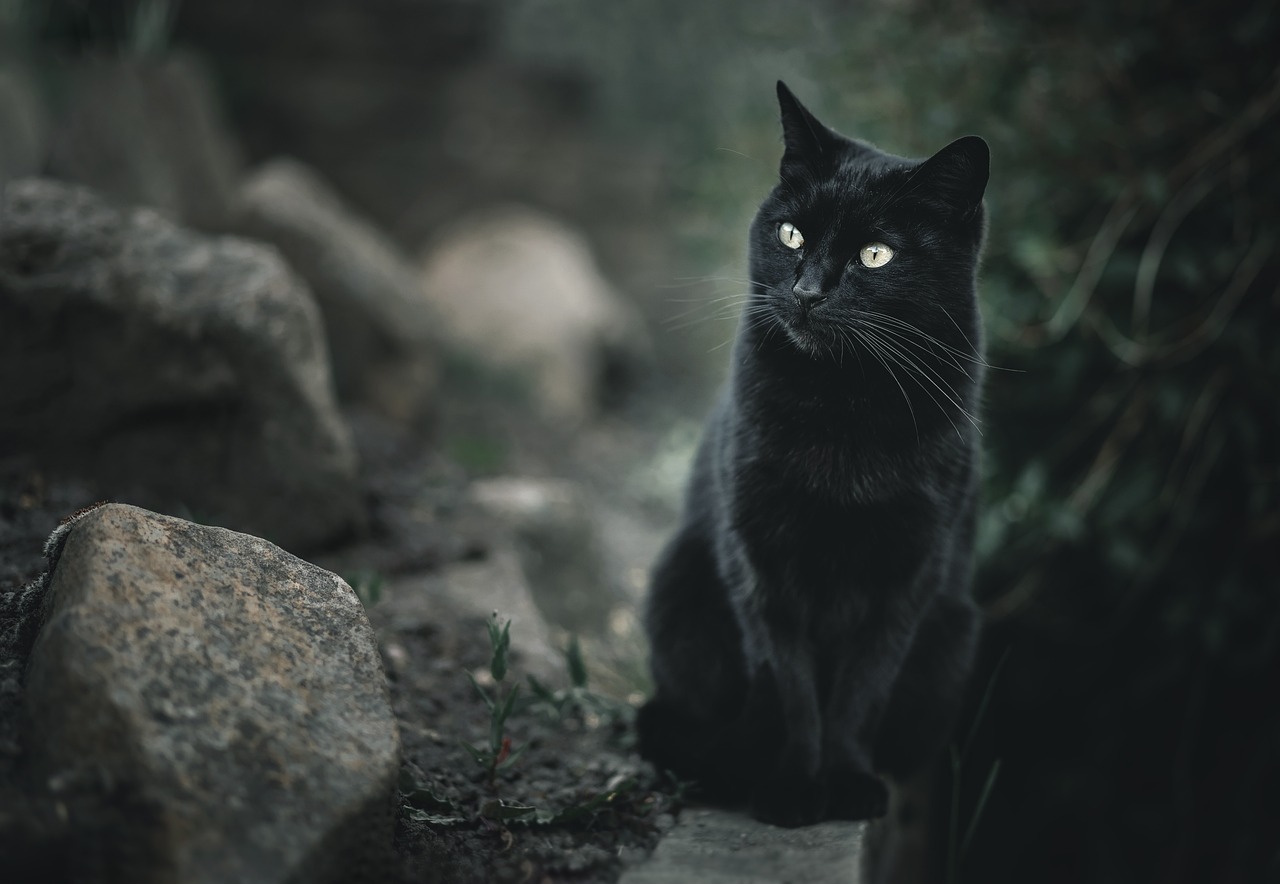
Grooming and Care Needs
The Sphynx cat, with its strikingly hairless appearance, requires a unique approach to grooming and care that might surprise many cat lovers. Unlike traditional cats, these feline companions don't have fur to absorb oils and dirt, which means their skin can become greasy and require regular attention. It's essential to establish a consistent grooming routine to keep your Sphynx healthy and comfortable. Regular bathing is crucial, typically every one to two weeks, to remove excess oils and prevent skin issues. While this may sound daunting, it can also be a bonding experience, allowing owners to connect with their pets on a deeper level.
In addition to bathing, Sphynx cats need specific skin care to ensure their health and happiness. Their skin can be sensitive, so using gentle, hypoallergenic shampoos is advisable. After bathing, applying a light moisturizer can help maintain skin hydration. Moreover, due to their lack of fur, Sphynx cats can be susceptible to temperature changes, making it vital for owners to provide a warm environment, especially in colder months. A cozy blanket or a heated cat bed can work wonders in keeping them snug.
Another important aspect of grooming is ear cleaning. Sphynx cats often accumulate wax and debris in their ears, so regular checks and cleanings are necessary. Using a vet-recommended ear cleaner and a soft cotton ball can help keep their ears in tip-top shape. Furthermore, dental care should not be overlooked; regular brushing of their teeth will help prevent dental issues, which is vital for their overall health.
To summarize, the grooming needs of Sphynx cats are unique but manageable with a bit of commitment. Here’s a quick overview of their grooming requirements:
| Grooming Task | Frequency | Tips |
|---|---|---|
| Bathing | Every 1-2 weeks | Use gentle, hypoallergenic shampoo |
| Ear Cleaning | Weekly | Use vet-recommended cleaner |
| Skin Moisturizing | After bathing | Apply light moisturizer |
| Dental Care | 2-3 times a week | Use pet-safe toothpaste |
By paying attention to these grooming and care needs, you can help ensure that your Sphynx cat remains not only healthy but also maintains its friendly disposition. A well-groomed Sphynx is a happy Sphynx, and happy cats tend to be more affectionate and sociable. So, embrace the grooming routine as a part of your bonding time with your Sphynx, and watch your furry friend thrive!
- How often should I bathe my Sphynx cat?
It's recommended to bathe them every 1-2 weeks to keep their skin clean and free from excess oils. - Do Sphynx cats need special food?
Yes, a balanced diet rich in nutrients is essential for their health and energy levels. - Can Sphynx cats get sunburned?
Absolutely! Their skin is sensitive, so it's important to limit their sun exposure and consider pet-safe sunscreen for outdoor time. - What are the signs of skin issues in Sphynx cats?
Look for redness, excessive oiliness, or any unusual odor, which may indicate the need for a vet visit.
Skin Care Essentials
The Sphynx cat, with its strikingly hairless appearance, presents a unique set of skin care needs that are essential for maintaining its health and comfort. Unlike other breeds, the absence of fur means that the Sphynx's skin is more exposed to environmental factors, making it crucial for owners to adopt a proactive approach to grooming. Regular skin care not only prevents issues such as oil buildup and skin infections but also plays a significant role in promoting the overall well-being of these affectionate felines.
One of the primary aspects of skin care for Sphynx cats is regular bathing. Although it may seem counterintuitive to wash a cat, Sphynx cats tend to accumulate oils on their skin that can lead to discomfort and even odor. Bathing them every 1-2 weeks is generally recommended to keep their skin clean and healthy. Use a gentle, hypoallergenic cat shampoo to avoid irritation. It's important to ensure that the water temperature is lukewarm, as Sphynx cats can easily get cold due to their lack of fur.
In addition to bathing, moisturizing the skin is another essential step in their care routine. Since Sphynx cats can be prone to dryness, especially in colder climates, applying a vet-recommended moisturizer can help keep their skin hydrated. This not only enhances their comfort but also contributes to a shiny, healthy appearance. Remember to avoid human lotions, as they can contain ingredients that are harmful to cats.
Moreover, regular inspections of the skin are vital. Owners should check for any signs of irritation, redness, or unusual bumps. This proactive approach allows for early detection of potential issues, which can be crucial in preventing more serious health concerns. Additionally, the ears of Sphynx cats require special attention as they can accumulate wax and debris. Gently cleaning their ears with a cotton ball and a vet-approved ear cleaner can help maintain their ear health.
To summarize the essential skin care practices for Sphynx cats, consider the following table:
| Skin Care Practice | Frequency | Purpose |
|---|---|---|
| Bathing | Every 1-2 weeks | Removes oil buildup and prevents odor |
| Moisturizing | As needed | Prevents dryness and promotes healthy skin |
| Skin Inspection | Weekly | Detects irritation or health issues early |
| Ear Cleaning | Bi-weekly | Prevents wax buildup and infections |
By adhering to these skin care essentials, Sphynx cat owners can ensure their pets remain not only healthy but also continue to exhibit their naturally friendly and affectionate personalities. After all, a well-cared-for Sphynx is a happy Sphynx, ready to snuggle and play!
- How often should I bathe my Sphynx cat? It is generally recommended to bathe them every 1-2 weeks to remove excess oils.
- Can I use human moisturizer on my Sphynx? No, it's best to use a vet-recommended moisturizer specifically designed for cats.
- What signs should I look for on my Sphynx's skin? Look for redness, irritation, or unusual bumps which could indicate a health issue.
- How can I keep my Sphynx's ears clean? Gently clean their ears with a cotton ball and a vet-approved cleaner every two weeks.
Diet and Nutrition
When it comes to the of Sphynx cats, it's essential to understand that their unique physiology requires a tailored approach to feeding. Unlike some other breeds, Sphynx cats have a higher metabolic rate, which means they need more calories to maintain their energy levels. This is partly due to their hairless nature, which makes them more susceptible to temperature fluctuations. So, if you're considering bringing a Sphynx into your home, be prepared to focus on their dietary needs to keep them healthy and happy.
First and foremost, a high-quality diet is crucial. You want to look for cat foods that are rich in protein, as this is vital for their muscle development and overall health. Ingredients like chicken, turkey, or fish should be at the top of the list. Additionally, healthy fats are important for their skin and coat health, even if they don't have much fur. Omega-3 and Omega-6 fatty acids are fantastic for maintaining their skin's elasticity and hydration.
It's also worth noting that Sphynx cats can be prone to certain health issues, such as heart disease and skin problems. To mitigate these risks, a balanced diet is key. Here’s a quick breakdown of what to include in their diet:
| Food Type | Importance |
|---|---|
| High-Quality Protein | Supports muscle growth and energy levels |
| Healthy Fats | Promotes skin health and energy |
| Vitamins and Minerals | Boosts immune system and overall health |
In addition to choosing the right food, portion control is equally important. Overfeeding can lead to obesity, which is another concern for Sphynx cats. It's best to consult your veterinarian for specific feeding guidelines tailored to your cat's age, weight, and activity level. Regular vet check-ups will help ensure that your Sphynx is on the right track.
Hydration is another crucial aspect of their diet. Cats, in general, can be prone to urinary issues, and Sphynx cats are no exception. Make sure they always have access to fresh, clean water. Some owners find that their Sphynx enjoys wet food, which not only provides hydration but also adds variety to their diet. Combining wet and dry food can help keep your feline friend satisfied and healthy.
Lastly, keep an eye out for any food allergies or sensitivities. Some Sphynx cats might develop reactions to certain ingredients, so it’s essential to monitor their health and behavior after introducing new foods. If you notice any unusual symptoms, consult your veterinarian to adjust their diet accordingly.
- What is the best diet for a Sphynx cat? A diet rich in high-quality protein, healthy fats, and essential vitamins and minerals is ideal.
- How often should I feed my Sphynx cat? It's recommended to feed them 2-3 times a day, but consult your vet for personalized advice.
- Do Sphynx cats need special grooming for their skin? Yes, they require regular skin care to maintain hygiene and prevent skin issues.
Frequently Asked Questions
- What makes Sphynx cats so friendly?
Sphynx cats are known for their affectionate nature and strong desire for companionship. Their playful demeanor and sociable behavior make them particularly engaging pets. They thrive on human interaction and often seek out attention, which fosters a friendly bond with their owners.
- Do Sphynx cats require special grooming?
Absolutely! Despite their hairless appearance, Sphynx cats need a unique grooming routine. Regular skin cleaning is essential to remove oils that accumulate on their skin. This not only keeps them comfortable but also promotes their overall well-being, contributing to their friendly disposition.
- How do Sphynx cats communicate with their owners?
Sphynx cats are quite vocal and use a variety of sounds to express their feelings and needs. Their vocalizations can range from soft purrs to loud meows, making it easy for owners to understand their moods. This form of communication enhances the bond between the cat and its owner, reinforcing their friendly nature.
- Are Sphynx cats good with other pets?
Yes! Sphynx cats are generally very social and can get along well with other pets. Their adaptable nature allows them to integrate into various social settings, making them great companions for other animals. Early socialization can further enhance their friendly interactions with fellow pets.
- What is the ideal diet for a Sphynx cat?
A balanced diet is crucial for Sphynx cats to maintain their energy levels and overall health. High-quality cat food that meets their nutritional needs will support their playful nature and sociable behavior. It's important to consult with a veterinarian to determine the best diet for your Sphynx.
- How can I ensure my Sphynx cat is happy?
To keep your Sphynx cat happy, provide plenty of interactive playtime, companionship, and a stimulating environment. Regular grooming, a balanced diet, and lots of affection will also contribute to their happiness and friendly demeanor. Remember, these cats thrive on love and attention!











